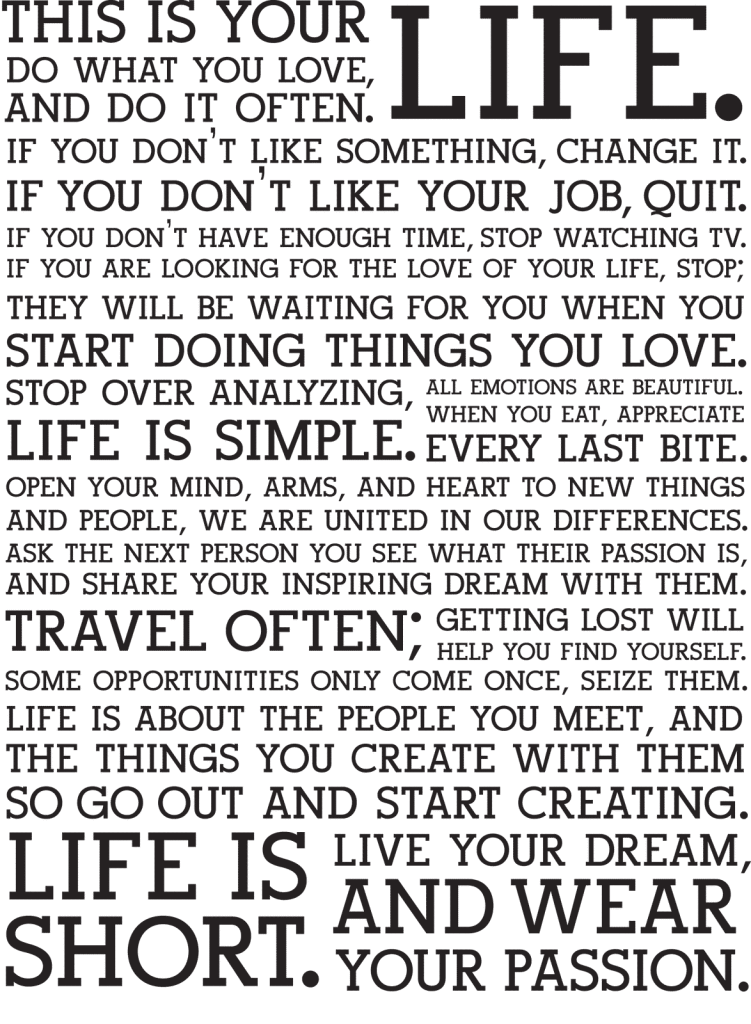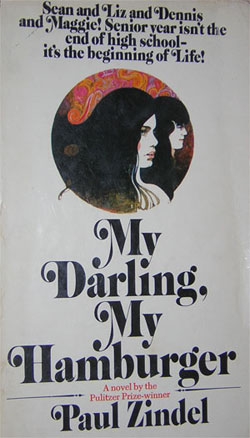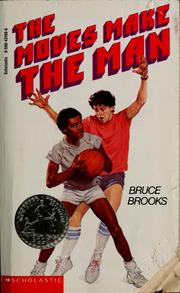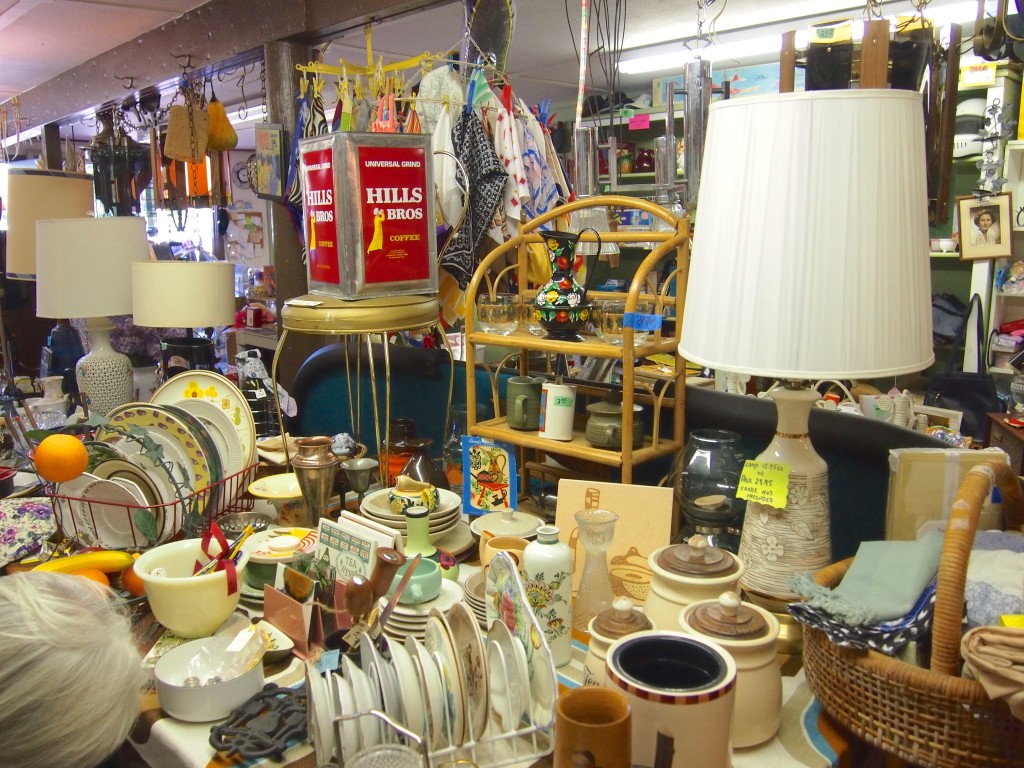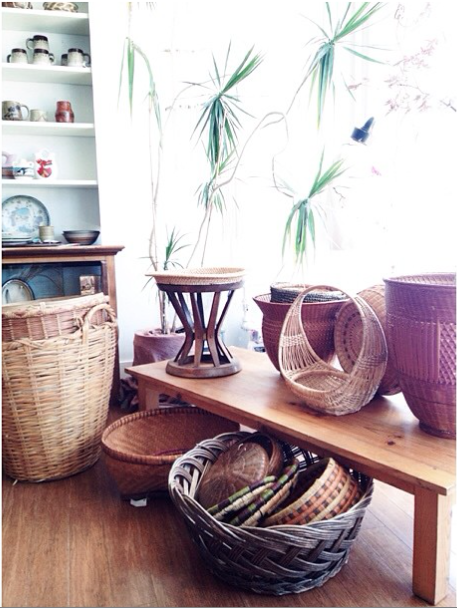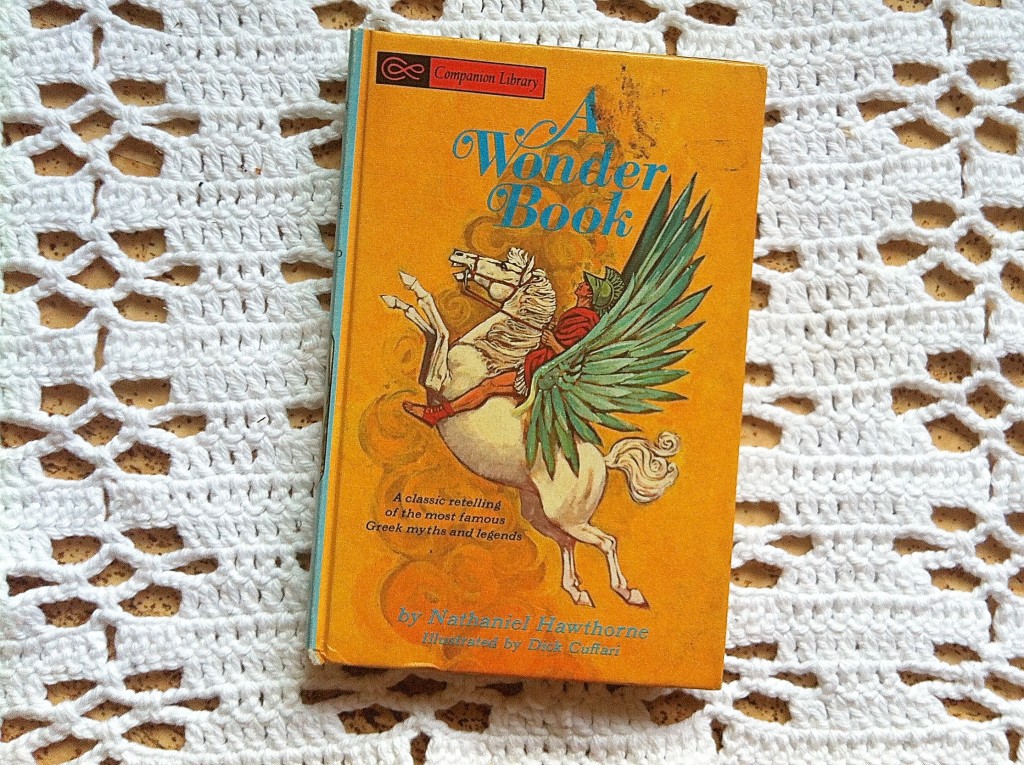During a visit to Powell’s early this summer, I found myself irritated by yet another book of the follow-your-bliss ilk, Elle Luna’s The Crossroads of Should and Must: Find and Follow Your Passion.
What a churlish, bitter old person I must be, to find such a positive and inspiring (and visually adorable) book irritating! Yet, irritated I was, and irritated I have been at the plethora of voices telling me I have a One True Thing and that the path to a meaningful, contented life is to quit the things I don’t like so I can live out my passion.
I thought perhaps it was all just sour grapes on my part. I spent years–no, decades!–trying desperately to figure out what I wanted to be when I grew up. Sometime in the last few I decided that my time to satisfactorily answer that question had run out.
And that sucked.
It was a source of dissatisfaction and disappointment and a keen sense that I somehow missed out, had wasted my “one wild and precious life“–despite the fact that I had, for a while, rejected the whole idea that we have a One True Thing. Because there are so many, many things I am interested in and want to do, I’ve wondered if the idea that we all have a One Thing is counter-productive. Perhaps, even, destructive.
Being the kind of person who can’t help poking at a canker sore with my tongue, a few days later I checked out the viral internet post that Luna’s book grew from. And there I read the words that turned my irritation and discontent on their unpleasant heads:
Should is how others want us to show up in the world — how we’re supposed to think, what we ought to say, what we should or shouldn’t do. It’s the vast array of expectations that others layer upon us. When we choose Should the journey is smooth, the risk is small.
Must is different—there aren’t options and we don’t have a choice.
Must is who we are, what we believe, and what we do when we are alone with our truest, most authentic self. It’s our instincts, our cravings and longings, the things and places and ideas we burn for, the intuition that swells up from somewhere deep inside of us.
The turning didn’t happen instantaneously. The words had to stew around in my head for a day or so. Has there ever, I wondered, been a Must in my life? Has anything ever felt not optional?
As a matter of fact, there has been, and the moment I finally saw it I felt the plates of my being shift:
This wasn’t the satisfactory shift of things clicking into place. It was more like the shifting of tectonic plates, the kind that jolts the ground beneath your feet.
No, no, no, no, NO: Mothering could not be my Must, my One True Thing! If anything was, it was supposed to be writing. I’d known that ever since 9th grade, when my first poem was published and a portfolio of my work placed in a prestigious writing contest and Mrs. Marchbank, my beloved creative writing teacher, told me that she knew one day she’d walk into a bookstore and see my books on the shelf.
I’d known even longer that mothering was not the thing that could or should be any woman’s True Thing. I grew up during the second wave of the 20th century feminist movement, when we listened to Free to Be You and Me in the classroom, and Title IX meant I had a right play sports with the boys, and passage of the Equal Rights Amendment felt like an inevitability. Sure, I was raised by a (mostly) stay-at-home mom, but she was one who refused to buy me Barbies because she didn’t want me to think looking pretty and dressing up was what being a woman was all about.
https://youtu.be/_26FOHoaC78
By the time I read Betty Friedan’s The Feminine Mystique and Margaret Atwood’s The Handmaid’s Tale in college, I wasn’t even sure I wanted to be a mother. I’d never liked babysitting or young children and I felt none of the maternal stirrings some of my college friends voiced.
But-but-but…is it possible that all those messages, so well-meaning and positive and affirming, were the voices Luna describes as the ones telling us how we should show up in the world? Although the intent was to free me from limiting expectations–and I am so deeply, profoundly grateful for that–is it possible that I internalized the messages as expectations nonetheless?
When it comes to mothering, most things have never felt optional. I can see, thanks to Luna’s words, that the ways in which I’ve mothered have been inseparable from who I am and what I believe.
Although mothering seems antithetical to fully becoming one’s own self–isn’t it, by definition, about supporting others in doing that?–it is through mothering that I have become my truest and most authentic self. Mothering has pushed me to question just about everything I believe, to stretch my talents, to take hard stands. It has challenged and required both my creativity and intelligence. It has often been hard and heart-breaking, but it’s also the most satisfying work I’ve done. While I’ve done much for my children, at its core mothering them was all for me, too.
I don’t want to get side-tracked into a Mommy War skirmish. I’m not claiming that mothering is either lesser or greater than any other Must, or that I’m a better or more committed mother than women who have had both children and some other Must. I’m just sharing my own, personal, surprising truth–mostly because it raised for me a question I’m not sure I’ve seen raised in any of the things I’ve read about following your bliss:
What does it mean when your bliss is something that isn’t (or can’t) be your livelihood?
Because, isn’t that always the assumption, that somehow our bliss should be the foundation for our paid work? In her original essay and book, Luna explores the difference between jobs and careers and callings, and asserts that our highest forms of satisfaction and meaning come when all three intersect. That sounds pretty wonderful–it’s what I spent years longing for–but what does it mean if our Must is something for which we can’t get paid? Is it just as valid/valuable to do work that isn’t a Must if it provides the means that allow us to follow an unpaid passion?
As I contemplated these questions and searched for answers, I discovered Cal Newport, who’s given me a much more satisfying and useful way to look at the issue of work and passion:
Newport says that “the conventional wisdom on career success–follow your passion–is seriously flawed.” Instead, he argues, passion emerges when we adopt a “craftsman mindset” (asking, What can I offer the world?) and find/create work through which we can develop skill, autonomy, and value. As we engage in work that allows us to grow skill and develop value that sets us apart from others, we become passionate about it.
In other words, we don’t find or follow passion. We create it.
If Newport is right, love for work grows in the same way that love for people grows. Sure, it might start with an initial spark of excitement and attraction, but true love grows over time through an accumulation of engaged experience. And sometimes, love sneaks up on us and we see it only after we’re deep in the middle of it. Sometimes, not just in corny Disney movies, we realize that the flashy, hot-looking guy (perhaps a creative career?) doesn’t have as much substance as the good, steady guy who’s been right for us in ways we never even realized were important.
Suddenly, more plate shifting, of even larger seismic magnitude: Is it possible I actually have been getting paid for doing a Must and I just never recognized it?
Is it possible I was never able to leave education, even as I so often felt as if it was keeping me from my One True Thing, because it, too, is a Must? Did it turn into a Must without me realizing it because I was so busy looking elsewhere I couldn’t see its true value? If I take the paragraph I wrote above about mothering and substitute the word “teaching,” it is just as true:
…it is through teaching that I have become my truest and most authentic self. Teaching has pushed me to question just about everything I believe, to stretch my talents, to take hard stands. It has challenged and required both my creativity and intelligence. It has often been hard and heart-breaking, but it’s also the most satisfying work [for pay] I’ve done. While I’ve done much for my learners, at its core teaching them was all for me, too.
For years I resented teaching for keeping me from being able to immerse myself in writing, but I can see now that I taught in the ways I did not because of what others required of me but because of what I required of myself, to meet my wants and needs for autonomy and creativity and work that mattered.
I can see now that I was never able to leave education because teaching and mothering fed each other–and me–in vital ways. Teaching allowed me to mother in the ways I needed to, and mothering fostered a love for students that made it impossible for me to walk away from them. Once I had my own children, teaching others’ babies could never be just a day job for me.
Why wasn’t I able to see this before? I think because choosing education always felt like copping out, playing it safe, failing to live up to some best version of me. Although the traditional narrative about creatives is that we are told we Should do something more sensible (and so we abandon our creative pursuits), I think that, for me, Luna’s voices of Should were the ones that said:
- You should practice your art to its highest possible level.
- You should make your art the centerpiece of your work.
- You should follow your artistic passion because to do otherwise is to waste it (and your life).
- Those who can, do. Those who can’t, teach.
What a relief to be able, finally, to hear these voices as ones proselytizing creative mythology, not truth. So, even though I disagree with Luna’s basic follow-your-passion premise (thank you, Cal Newport, for giving me a framework to help me understand why), I am so grateful for the ways in which her characterization of Should and Must set me on a path that’s ended with seeing my life’s work through a different and healing lens. It is such a relief to be able to lay the “what do you want to be?” question to rest and replace it with new ones:
What skills do I want to grow?
What can I provide that no one else can?
What is the best way to serve?
If you have wrestled with questions of purpose and passion and work, the question I want to pose to you, now, is this:
Is it possible that you are already doing the thing you’re meant to do? What would it mean for you if you are?
You know I’d love to talk with you about it in the comments, so feel free to leave one. 🙂

